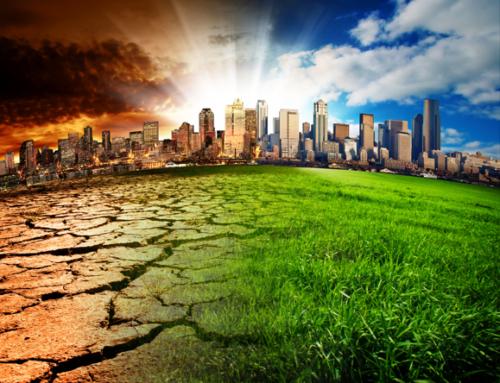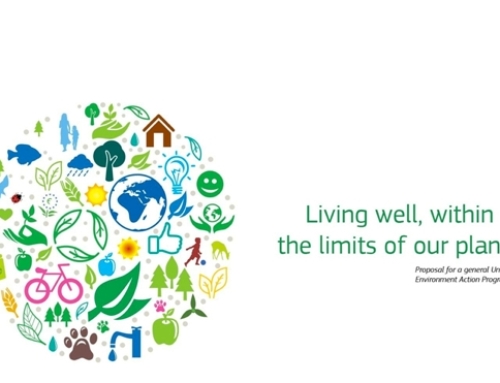According to the European Environmental Agency (EEA) – in measuring progress towards green economy, resource efficiency and ecosystem resilience – the overall process of social and economic transition could be divided into social, technological, economic, environmental and political global mega trends.
Between 2013 and 2014, the EEA has addressed several aspects of the green economy, and developed an integrated perspective that embraces some global dimensions and focuses on environmental impacts of production and consumption systems.
These various dimensions have far-reaching implications for individual nations and citizens; in particular, there are several factors and global mega trends within the European production and consumption systems that create serious environmental consequences, as follows:
6 interrelated factors that shape the environmental impacts of production and consumption systems in Europe
- Economic factors (income, trade, prices, taxation, availability of resources and capital, etc…);
- Demographic factors (population size and share, square meters per person, etc…);
- Technology and innovation (resource efficiency, social innovation, etc…);
- Urbanization and infrastructure (share of people living in cities, urban sprawl, etc…);
- Social and cultural factors (values, lifestyles of friends and family, group identity, desires, feelings, etc…);
- Business models and marketing (linear vs. circular business models, scaling up opportunities, etc…).
7 global mega trends that affect the environmental impacts of European production and consumption systems
- Populations expansion, especially in cities;
- New economic powers;
- Global economic output project to triple by 2050;
Rapid growth of middle class consumers in developed world; - Extraction of resources may more than double by 2050;
- Growing resource prices;
- Global competition for resources.
Globally, populations are expanding and concentrating in cities. In combination with better health and education, and accelerating technological innovation, these trends have driven growth in economic output, boosting resource demand and environmental burdens.
As such processes have extended beyond developed countries to encompass the more populous developing regions, the impacts of such global dimensions are becoming even more pronounced.
The pace and scale of current social and economic change are remarkable. Global economic output, for example, is expected to almost triple in the period 2010–2050. The share of OECD countries in global output is expected to roughly halve in that period, from 77% to 42%.
Extraction of resources — biomass, minerals, fossil fuels, metals — may be more than double. In just two decades, from 2010 to 2030, the number of middle-class consumers could increase from 1.8 billion to 4.9 billion.
Most of these global mega trends affect consumption in Europe, directly or indirectly. In some respects, they offer potential benefits to European customers: for example, the rebalancing of economic markets enable Europeans to access a wide range of goods and services from locations with comparatively low labour costs.
Accelerating technological change can also offer Europeans access to different types of goods and services, including more efficient and environmentally friendly ways of meeting everyday needs.
Many of the mega trends also have the potential to undermine living standards. For example, rapid growth of the middle class in developing regions — and associated changes in diets, motor vehicle ownership and material consumption — are such as to increase competition for resources, potentially driving up product prices.
The effect of such trends could be to depress the spending power of consumers in Europe and elsewhere. Growing global competition for resources could also threaten security of access to some goods and services, particularly those depending on a selection of commodities designated as critical raw materials.
There is no doubt that pollution, greenhouse gas emissions and demands on ecosystems associated with escalating global consumption present significant threats to the environment and human well-being.
What approaches would be needed to change consumption and production systems?
- Choice influencing or choice editing, including nudging;
- Supply-chain management, corporate social responsibility and feed-back mechanisms along the supply chain;
- Certification, labelling and other information-based approaches;
- Circular economy concepts including take-back schemes, re-manufacturing, and industrial symbiosis.
Conclusions
Existing production and consumption systems define what consumers perceive as normal, affordable, available and socially acceptable, and what producers and distributors perceive as profitable, low risk and well-established. Production and consumption systems are shaped by an array of factors that create lock-ins to unsustainable systems; ways out of lock-ins are essential if sustainability visions for 2050 are to be realized in Europe and worldwide.
Factors influencing production-consumption systems include prices, income and taxation; trade and global production chains and their impacts on prices; technological advances, new business models and marketing; urbanization and infrastructure developments; demographic patterns related to the size and structure of the population; and, critically, social and cultural factors such as habits, social norms and heritage.
The various constraints at national and intergovernmental policy making level leave a gap in global governance that could partly be filled by business and civil society activities. Managing mega trends requires new forms of coordination and collaboration, and less complicated global economic systems to match a new integrated and sustainable system of global governance.
Information Source: European Environmental Agency (EEA).
We help our clients and partners address the most pressing economical, political, social and environmental challenges. If you want to learn more about our sustainability practices, please Contact Us for an initial introductory consultation to discuss what management and communications systems you may need for complete sustainability legislative and regulatory compliance, and better measurement and reporting of TBL performance.








Leave A Comment
You must be logged in to post a comment.